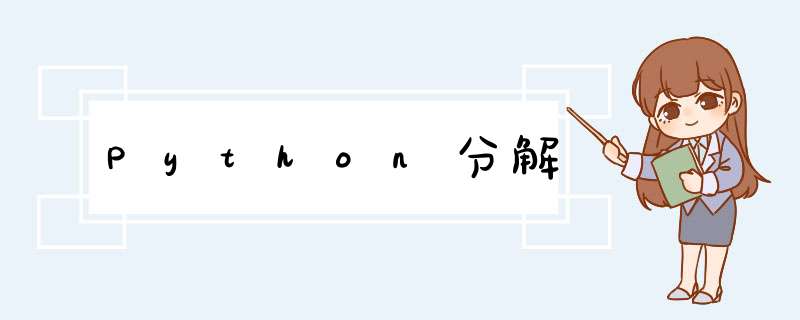
好吧,不仅您有3个循环,而且如果您有3个以上的因素,这种方法将无效:)
一种可能的方式:
def genfactors(fdict): factors = set([1]) for factor, count in fdict.iteritems(): for ignore in range(count): factors.update([n*factor for n in factors]) # that line could also be: # factors.update(map(lambda e: e*factor, factors)) return factorsfactors = {2:3, 3:2, 5:1}for factor in genfactors(factors): print factor此外,您还可以避免在内部循环中重复某些工作:如果您的工作集为(1,3),并且想应用到2 ^ 3个因子,那么我们正在做:
(1,3) U (1,3)*2 = (1,2,3,6)
(1,2,3,6) U (1,2,3,6)*2 = (1,2,3,4,6,12)
(1,2,3,4,6,12) U (1,2,3,4,6,12)*2 = (1,2,3,4,6,8,12,24)
看看第二组中有多少个重复项?
但是我们可以改为:
(1,3) + (1,3)*2 = (1,2,3,6)
(1,2,3,6) + ((1,3)*2)*2 = (1,2,3,4,6,12)
(1,2,3,4,6,12) + (((1,3)*2)*2)*2 = (1,2,3,4,6,8,12,24)
没有设置,解决方案看起来更好:
def genfactors(fdict): factors = [1] for factor, count in fdict.iteritems(): newfactors = factors for ignore in range(count): newfactors = map(lambda e: e*factor, newfactors) factors += newfactors return factors
欢迎分享,转载请注明来源:内存溢出

 微信扫一扫
微信扫一扫
 支付宝扫一扫
支付宝扫一扫
评论列表(0条)